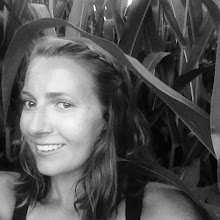Nevada was hard and strange, like I remember. Rubble and near-ghost-towns punctuate vast expanses of sage and Joshua trees. We stayed in Tonopah, a town on the brink of memory, and ate steak and fries in a sea-themed restaurant. Old mines spring up between crumbling hotels and saloons; a plague cemetery (1901-1911) opens up onto the parking lot of the Clown Motel (bikers welcome).
Arizona is red, and rock. We stay in an aspen forest overnight and pass a buffalo herd grazing in a nearby meadow on our way to the North Rim of the Grand Canyon. There we share a trail with mules and their leavings and watch chipmunks. Pinyon pines and sage, a man in Fredonia who still says the word "blackies."
Utah is red, and rock. We drive through Monument Valley and I flash back to the Western units in my film classes. Rock formations like hands line a dry riverbed and American Indian women sell turquoise from tables under makeshift shelters built of cracking planks and tree branches. It is hot, and it is vast.
Colorado is beautiful, all meadows and mountains and rivers. Everyone seems to own horses, and we see elk and antelope. Aspen and pine line the roadways and lakes and streams wind alongside us, beckoning Alex to fish. We stay at Mosca Lake and are eaten alive by tiny mosquitoes, and spend the morning jumping from the dunes at Great Sand Dunes National Park. My pockets fill with sand.
Oklahoma is flat and brownish-green. It is impossible to tell how far we've gone, because there are no landmarks. We pass through towns at 70 mph and they end in under a minute. The larger towns have downtowns of brick, but every shopfront is empty or closed and Walmart stands at the edges. There are no grocery stores, only fields of wheat.

Arkansas is green, green, green and swampy. Dead armadillos line the roadsides and signs denote various bayous just out of sight. We camp alongside the Big Piney Creek and swim in the dark, naked and thrilled as the headlights of other campers pass just over our heads. Kudzu coats the branches and my companions get poison oak. I kick a toad outside of the bathroom and bats wheel over the water at night. The long pool of the creek is stone-green and still; a spotted gar the length of my arm swims past our feet as we sit on a fallen tree. I say, I could live here, and know with certainty that the statement is true. Arkansas sits deep in me; the sound of cicadas rings in my chest and I know that I have made the right choice in leaving California, where the trees are too silent at night and the air does not coat you like rain. I realize that Laura will never see Arkansas. I realize I will likely spend the rest of my life mourning the innumerable things Laura will never see. My father is jealous, and I sense in him a wish like mine - to leave what is known in exchange for the feeling of newness, of aliveness.
